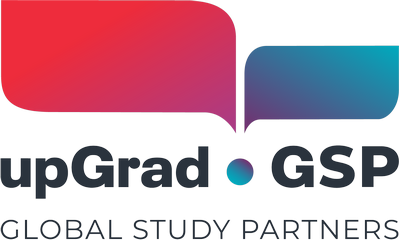The Canadian government has sent out letters to all provinces in the country to consult them on anticipated changes to the post-graduate work permit (PGWP) program.
What is the PGWP?
The PGWP, or post-graduation work permit, is granted to those who have graduated from a designated learning institution (DLI) and want to remain in the country to work temporarily. DLI graduates are not automatically eligible for the PGWP; they must first meet all the prerequisite criteria before they can apply. This post-study route is highly considered by many international students as it provides them with the opportunity to gain valuable work experience in Canada, which they can then eventually use to forge a path towards permanent residence.
Changes to the PGWP
Along with other policy changes, Canada has introduced several updates on the PGWP program. The primary goal of these changes is to “ensure genuine students receive the support they require and have the resources they need for an enriching study experience in Canada, while at the same time stabili[s]ing the overall number of students arriving and alleviating pressures on housing, health care and other services in Canada.”
The Immigration, Refugees and Citizenship Canada (IRCC) had already previously adjusted PGWP rules due to the previous impacts of COVID-19 to accommodate remote learning during the lockdown. Students who started their degrees before 31 August 2022 were allowed to complete 100% of their program online from outside of Canada from March 2020 to 31 August 2022. This time spent studying outside the country before 31 December 2023 wouldn’t be deducted from the length of their PGWP. Meanwhile, students who began their studies from 1 September 2022 onwards were expected to complete 50% of their program inside Canada, either online or in-person.
As of 15 February 2024, students who graduate from master’s degree programs of less than two years (eight months minimum) may be eligible for a PGWP valid for three years. The length of one’s PGWP depends on their program level and duration, as well as their passport expiration date, whichever comes first.
Another change, implemented just last 15 May 2024, involves updating the eligibility criteria. International students who begin a study program that’s part of a curriculum licensing arrangement will no longer be eligible for a PGWP upon graduation, save for two types of exemptions.
Consultations regarding the PGWP
The Canadian government is set to further calibrate the PGWP to ensure labour market outcomes are linked to education and training. As such, it has sent out letters to all provinces consulting them on anticipated changes. The government is making it clear that restrictions will be enacted once its consultation concludes.
Here are some of the key questions outlined in the consultation:
- If PGWP eligibility were restricted based solely on occupations in shortage, and corresponding programs of study, which occupations should be included based on the needs in your area? Please indicate if there are any occupations in shortage that should have been reflected in the mapping document along with your rationale.
- What, if any, cohorts should be exempted from these changes, such as francophone students or graduate degree programs or others? Please indicate the rationale.
- Should international students be required to demonstrate proof of a job offer aligned with the occupational shortage list in order to hold a PGWP beyond one year?
- Should any other eligibility criteria (language, provincial support, etc.), apart from a job offer, be applied to PGWP holders seeking to extend their permit past one year.
- What is your view of applying these labour market-based changes to PGWP eligibility to all graduates upon announcement this year, rather than grandfathering students who are already studying in Canada at the time of implementation?
- How often should the occupational shortage list be revised, and at what point thereafter should it be applied to students whose study is underway?
- Do changes to the PGWP being explored align with the profile of candidates you’d like to remain working in your jurisdictions in the long term?
- Is your PNP positioned to offer a viable pathway to permanent residence for international graduates with job offers in these key sectors? Are there any gaps between the labour market needs you have identified and your PNP’s existing streams? Will any PNP stream amendments be required to ensure they remain responsive to graduates and PGWP holders in specific occupations (e.g. regulated occupations)?
The proposed policy changes follow last year’s spike in work permits issued, which saw a 266% rise in eight years. According to CBIE, there were “over 1 million international students in Canada at the end of 2023 at all study levels.” A 2021 survey of students also revealed that “72.5% were intending to apply for PGWP and 60% were intending to apply for permanent residency.”
According to policy hawk Earl Blaney, there could be up to a million students over the next three years whose PGWP access expires and may be at risk of being deported. A change in policy that’s too abrupt will surely impact and shock international students who are already invested in Canada. “Change is needed, but it would be highly irresponsible to implement changes of this magnitude without due notice,” Blaney told The PIE, highlighting a need for system stability.
During these times, we need to stay vigilant about these updates and progressions, so that we can in turn inform our students accordingly. To stay updated on relevant news like this, check out our blog or reach out to our North American team at gspna@globalstudypartners.com.




